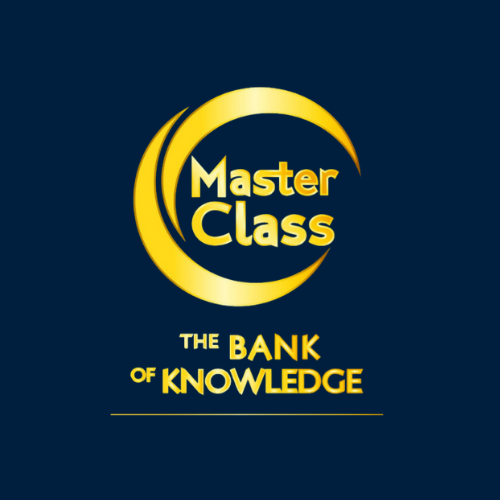Quote:
"Time is the most valuable currency, worth more than gold. Once spent, it's irretrievable. To master time is to unlock the key to your dreams and leave a legacy that transcends generations."
Paul R.K Mashauri
Time is a currency more valuable than gold; once it's spent, it's gone forever. We've all heard that time is money, but it's more than just a saying—it's a fundamental truth of life. Think about it this way: when you borrow money from a bank, they charge you interest because time affects the value of money. It's the essence of inflation, a concept deeply intertwined with the essence of time.
Consider the world of employment—why are most workers paid on an hourly or monthly basis? Why do consultants and coaches charge hourly rates? The answer is simple: time is precious, and when it's gone, it's irreplaceable. Compensation is a way of acknowledging the significance of one's time.
However, knowing the value of your time is only the beginning. The real challenge lies in effective time management, a skill that eludes many. This is where the science of time management comes into play, starting with an understanding of your behavior patterns and productivity style. What drives your actions? What governs your core impulses?
Recognize that humans are wonderfully diverse, and how we respond to life's demands varies from person to person. The DISC Personality Assessment Model, for example, categorizes some as fast-paced and others as slow-paced. It distinguishes between those who are task-oriented and those who are people-oriented. To effectively manage your time, the first step is to know your personality or productivity style intimately.
The second step involves a critical analysis of how you spend your time. Visualize your ideal week—how do you allocate time for family, work, business, spirituality, personal development, leisure, and rest? This is an exercise that requires nothing more than a pen and paper. Customize it to suit your unique circumstances, adding or subtracting areas relevant to your life.
Next, record the number of hours you devote to each aspect of your life within your ideal week. Some areas will inevitably consume more hours than others. Then, based on your life priorities and what truly matters to you, assign a weight to each area on a scale of zero to ten. For example, if family holds paramount importance for you, give it a high score, say, 8 out of 10.
Upon completing this exercise, take a hard look at your results. Suppose family received a well-deserved 8 out of 10, while watching TV, in comparison, received a meager 3 out of 10. However, your weekly hours reveal that you spend only 7 hours with your family and a whopping 21 hours glued to the TV. What does this discrepancy tell you about your time management? In plain terms, it signals the need for action.
In an era where the digital world relentlessly demands our attention—through smartphones, social media, and the Internet of Things—you need a model to align your time with your personal, family, professional, and business goals. One highly effective model that has stood the test of time is Eisenhower's Time Management Matrix, and it can work wonders for you too.
Eisenhower's Time Management Matrix
Imagine your tasks falling into one of four quadrants:
- Urgent and Important (Do First): These are tasks that demand immediate attention and contribute significantly to your goals. Handle them promptly.
- Important, but Not Urgent (Schedule): These tasks are crucial for long-term success but may not require immediate action. Schedule them for future completion.
- Urgent, but Not Important (Delegate): Tasks in this quadrant may seem pressing but don't align with your goals. Delegate them whenever possible.
- Not Urgent and Not Important (Eliminate): These tasks are time-wasters and don't contribute to your goals. Eliminate them from your routine.
Now, let's delve into some thought-provoking questions to deepen your engagement with the material:
- What are your top priorities in life, and how well are you allocating your time to them?
- Can you identify any recurring time-wasting activities or distractions that hinder your progress?
- Have you considered your unique personality and productivity style when designing your time management strategy?
- What tasks or responsibilities have you been delegating effectively, and where could you improve in this regard?
- How can you adapt Eisenhower's Time Management Matrix to your daily life and goals?
To facilitate your journey to effective time management, here are practical exercises and activities:
1. Time Tracking: Spend a week tracking how you allocate your time. Identify areas where you can reclaim hours for higher-priority activities.
2. Daily Prioritization: Start each day by listing your top three tasks, focusing on the "Do First" and "Schedule" quadrants of the Eisenhower Matrix.
3. Weekly Review: Dedicate time each week to review your progress, adjust your schedule, and reallocate time based on evolving priorities.
4. Delegation Practice: Identify tasks that can be delegated at work or home. Delegate one task this week and evaluate the outcome.
5. Technology Detox: Schedule regular technology detox sessions to reduce distractions from digital devices and enhance your productivity.
At the end of each section, consider creating a personal action plan that encapsulates your key takeaways. Your plan should include specific steps you will take to improve your time management skills.
To further deepen your understanding, explore these reference materials:
Books:
- "Getting Things Done: The Art of Stress-Free Productivity" by David Allen
- "Eat That Frog!: 21 Great Ways to Stop Procrastinating and Get More Done in Less Time" by Brian Tracy
Videos:
- TED Talks on time management and productivity
Key Takeaways:
- Time as Currency: Understand that time is a currency more precious than gold. It cannot be reclaimed once spent.
- Time Management Essence: Realize that time affects the value of everything—money, goals, and life itself.
- The Significance of Compensation: Recognize that hourly wages and consulting fees exist because time is invaluable and irreplaceable.
- Science of Time Management: Embrace the science of time management, starting with self-awareness of your behavior patterns and productivity style.
- Diversity in Response: Acknowledge that humans respond differently to life's demands. Personalities and productivity styles vary greatly.
- Know Your Style: To manage time effectively, the first step is knowing your personality or productivity style intimately.
- Analyze Time Allocation: Visualize your ideal week and allocate time to family, work, business, spirituality, personal development, leisure, and rest.
- Weighting Priorities: Assign a weight to each area based on your life priorities. Prioritize the most important aspects of your life.
- Action on Discrepancies: Address discrepancies between your priorities and actual time allocation with decisive action.
- Eisenhower's Matrix: Utilize Eisenhower's Time Management Matrix to categorize tasks into four quadrants: Urgent and Important, Important but Not Urgent, Urgent but Not Important, Not Urgent and Not Important.
- Prioritize Effectively: Focus on tasks in the "Do First" and "Schedule" quadrants for long-term success.
- Reflect and Adapt: Regularly assess your progress, adjust your schedule, and reallocate time according to evolving priorities.
- Effective Delegation: Identify tasks that can be delegated at work or home, improving efficiency and freeing up valuable time.
- Digital Detox: Schedule technology detox sessions to reduce digital distractions and boost productivity.
- Create Personal Action Plan: After each section, formulate a personal action plan outlining concrete steps to enhance your time management skills.
Mastering time management is not just about managing minutes and hours; it's about reclaiming control over your life, your priorities, and your legacy. Time is your most precious resource—use it wisely, and you'll discover newfound potential for achieving your dreams and creating a lasting impact on the world.
Unlock your potential with MasterClass Worldwide and our global partners. From consulting to coaching, mentoring, tools, and services, we've got you covered. Subscribe now and embark on your transformative journey! Visit: www.masterclassworldwide.net]



Comments ()